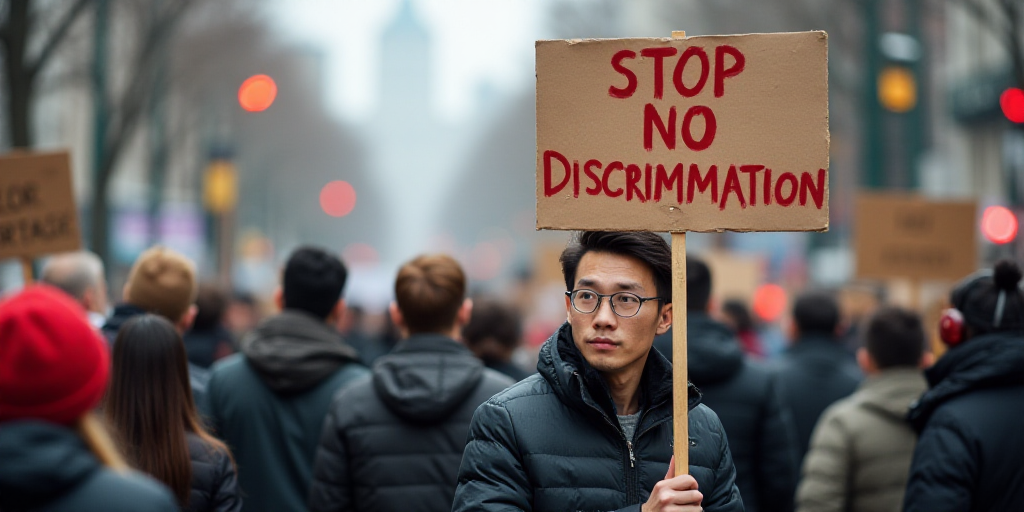Background and Key Players
A proposed Texas law, SB 17, aims to prevent Chinese citizens from purchasing properties in the state. The bill has already passed through both the Republican-majority Texas Senate and House, drawing criticism from Asian communities who label it as racist.
The bill was initially introduced in 2023 by Republican state Senator Lois Kolkhorst and resurfaced in 2025 amidst President Donald Trump’s anti-immigration campaign and his trade war with China.
Content of the Bill
SB 17 includes countries deemed a threat, such as Russia, North Korea, and Iran, granting Texas Governor Greg Abbott (a Trump ally) the authority to add more nations.
Kolkhorst argues that the legislation ensures “hostile nations” cannot control Texas’s most valuable assets, stating, “This legislation will guarantee that hostile nations do not control Texas’s most prized possessions.”
Community Response and Concerns
Hundreds of members from the Asian community in Texas protested at the state capitol and Governor Abbott’s official residence in Austin, holding signs like “Equality for all, hate for none” and “Housing is a human right.”
Texas Representative Gene Wu, a Democrat, explained that the bill implies Chinese immigrants cannot buy land, affecting those with work or study visas who are legally present in the US.
Although the bill exempts “green card” holders and naturalized citizens, it hinders those seeking permanent residency since they cannot prove long-term residence without owning property.
Security vs. Discrimination
The bill’s restriction also targets the governments of those countries, assuming properties could be used for espionage or interference in Texas’s production chain.
Republican state Representative Cole Hefner defended the bill, stating, “This is the strongest, most comprehensive, and widest law in the country that protects us from hostile foreign ownership of our lands.”
“Racist” Claims
Alice Yi, co-founder of Asian Texans for Justice, told AFP, “If a law targeting certain people based on their origin is passed, it’s racist.”
With 2 million Asian-Americans in Texas, many of whom have lived there for over 100 years, Yi emphasized, “This is our country too. We built Texas and the US.”
Impact on Chinese Investors
In 2021, retired Chinese military officer Sun Guangxin planned to establish a solar and wind farm in Texas, but his initiative was thwarted by a law preventing businesses linked to the Chinese government from accessing Texas’s power grid and strategic assets.
Eileen Huang from the Multicultural Defense Coalition of Texas clarified, “Not everyone is a spy or associated with a government. Many people flee their home countries due to disagreements and come to Texas as refugees, believing it to be their new home.”
Key Questions and Answers
- What is the proposed Texas bill (SB 17) about? It aims to prevent Chinese citizens from purchasing properties in Texas, citing national security concerns.
- Who supports and opposes the bill? The bill has passed through both the Republican-majority Texas Senate and House. Asian communities and some lawmakers, like Democratic Representative Gene Wu, oppose it, calling it racist.
- What are the concerns of those opposing the bill? Opponents argue that the bill unfairly targets Chinese citizens, hinders permanent residency applications, and promotes widespread discrimination against Asians.
- How does the bill affect Chinese investors in Texas? The 2021 law already restricted businesses linked to the Chinese government from accessing Texas’s power grid and strategic assets, impacting potential investors like Sun Guangxin.
- What is the response from the Asian community in Texas? Hundreds protested, holding signs advocating for equality and housing as a human right. Leaders like Alice Yi emphasize that Asian-Americans are an integral part of Texas and the US.






